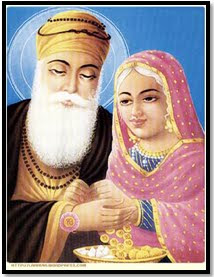Social class is a very controversial subject within society, it is one that not necessarily everyone agrees with as consequently it determines your role and status within society based on the income that you may or may not have. According to (Solomon 2006) social class is determined by a complex set of variables, including income, family background and occupation.
(Krech, Crutchfield & Ballachey, 2000), describe social class as ' a division of society made up of persons possessing certain common social characterising, which are taken to qualify them for intimate, equal status relations with one another and which restrict their interaction with members of other social classes'.
There are several ways to determine which social class you belong to as mentioned before, the income you earn, the area you live in, your education level or they way you speak or dress etc, however in recent years it has become increasingly difficult to base someone's social class on these factors alone.
In Medieval times you would be able to distinguish the upper class by the clothes they wore, only the rich would wear red and blue purely because they were the only ones who were able to afford it. In today's society it is much more difficult to distinguish someone's social class by the money they earn as the amount of income is overlapping within job titles. For example 10 years ago somebody who worked in a profession such as a doctor, lawyer or engineer would be seen us upper middle class due to their title and their income but now a plumber who would have been seen as lower class is more than likely to be earning the same amount as in a highly skilled profession.

Although social class is still a strong aspect within society you can slowly see it disbursing, in a sense that it is becoming more easily accessible to move up the social hierarchy. Many of the upper class are in fact born into wealth but there are a lot more people coming into new money. One example would be Jade Goody who before she came into wealth she would have been associated with lower middle class however through the income that she made it in fact changed her status and role within society.
This begs the question does social class choose you or do you choose social class? Initially you are born into the social class of your parents but through consumption, social groups and attitudes and behaviours you are able to move through the hierarchy, you can play at belonging to another group.
Products that you use can have a symbolic indicator as to which social group you belong to, therefore in order for marketers to reach their target audiences, they have to first establish which social class would be best suited for their products and services. For example with cosmetic brands such as Mac or Dior they are seen as being upper class so if someone from a lower class were to buy into these brands they would then be associated with the these classes.
Here are some examples of how advertisers try to engage specific social classes;
In the UK there are many different social class groups which people are pit into mesaured by the amount of income that they earn these vary from A to E.
- A is the upper middle class, the highest within society - high managerial, administrative or professional.
- B is the middle class, which is a large proportion of the population - intermediate mangerial, administrative or professional.
- C1 is the lower middle class - supervisory or clerical and junior managerial.
- C2 is the working class - semi skilled manual workers.
- D is the working class - semi and unskilled manual workers
- E is the lower class - casual or lowest grade workers and pensioners.
Social classes are amongst different countries, all of which have their own way of determining the social hierarchy and not necessarily involving income and family background. In some countries the upper class are seen by their skin colour, to be paler means you have an higher social standing. In countries such as India the social class systems are determined by their inherited background and which tribes they belong to, these social classes unlike the UK are set and there is very little social mobility meaning that it is very rare that people will be able to move up the hierarchy.
This system is known as the 'Caste System' in which the people within the system are expected to marry and interact amongst the same class, thus making it a very popular system used within religions such as Hinduism and Muslim. The different classes within this system are;


Brahmins - Priests and teachers
Ksatriyas - Warriors and ruler
Vaisyas - Farmers and Merchants
Sudras - Labourers
Untouchables - Polluted labourer
Social class still plays a major part within society however going back to the question, does your social class choose you or do you choose your social class in relation to the UK I think that social class has turned into an aspirational element of society in the sense that you are born into a certain social class but that doesn't necessarily mean who you are. With your own individual beliefs, values and attitudes you can obtain your own social standing within society and belong to which ever group you feel you most belong to.
No comments:
Post a Comment